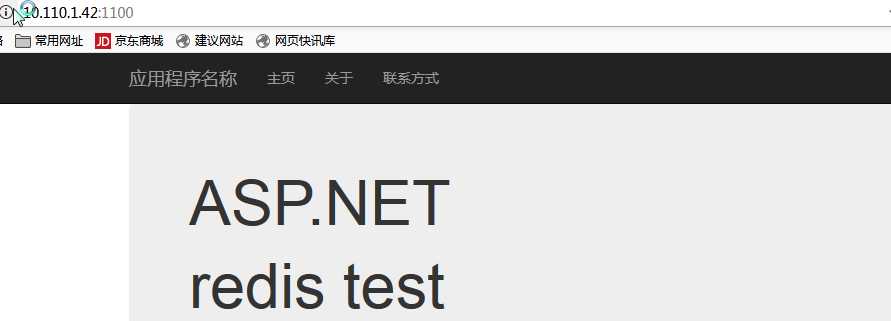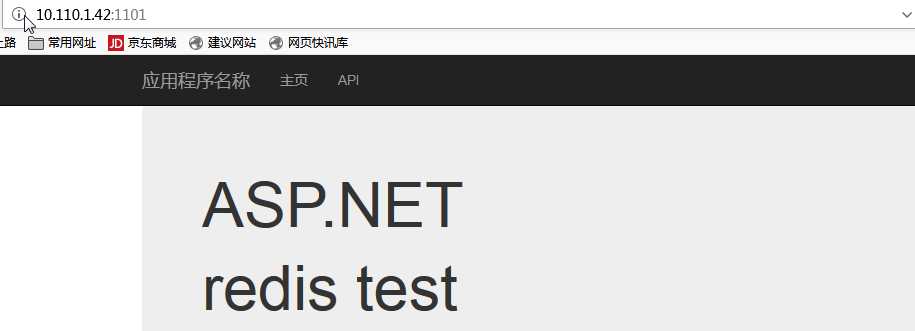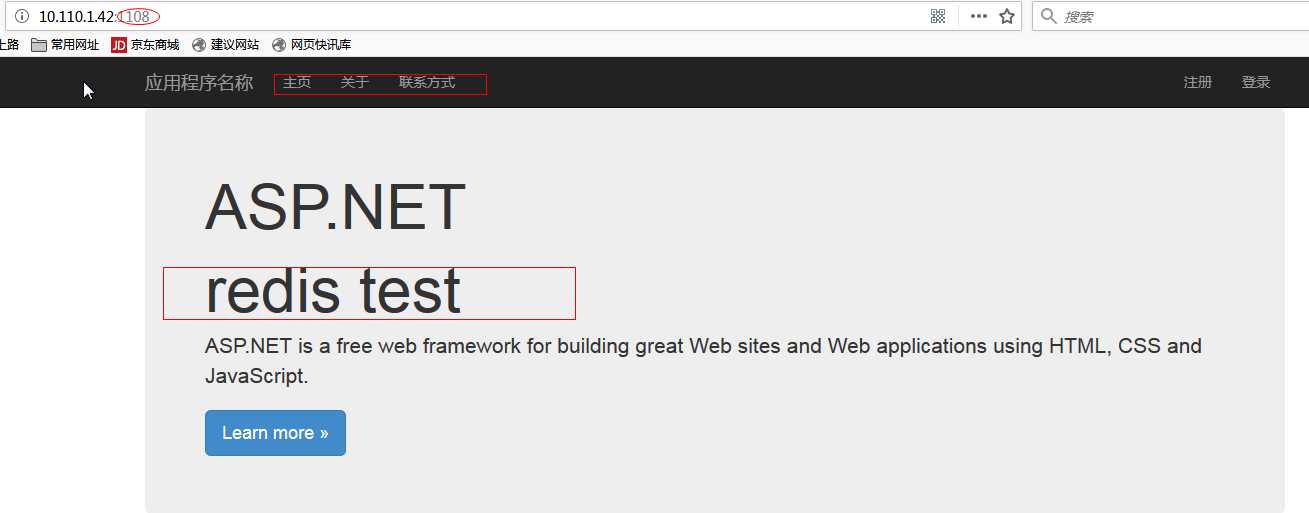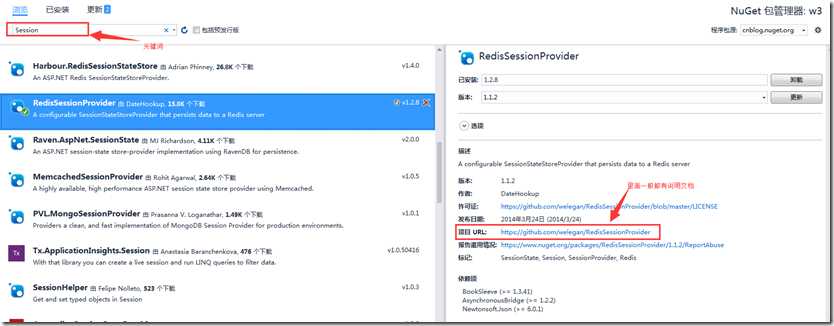上两篇文件介绍了如何安装和封装redis 本篇主要是记录下怎么实现 nginx+redis实现session共享
目前session问题点
又爱又恨的Session
刚接触程序开发的人一定爱死Session了,因为Session让Http从无状态变成有状态了,页面之间传值、用户相关信息、一些不变的数据、甚至于查出来的DataTable也可以放进去,取值的时候只需要Session[Key]即可,真是方便极了。Session真是个利器,人挡杀人佛挡杀佛,但任何事物被封为利器基本也是双刃剑,Session的许多问题我们不得不去面对。
【常见问题请见下图】
我相信一见到这个问题,老程序员都会心里一哆嗦,Session是导致这个原因之一,大家也会想到这个情景,“我去,是不是Session又丢了,让用户重新登录”,事故报告中会填写:.NET规定,用户登陆后长时间没操作导致的。解决方案为:把Session时间调到9999。
结果该发生的还是继续发生着,Session照样丢失。
【常见Session丢失原因】
1、Session超时,用户打开页面,页面长时间不操作会导致此原因
2、IIS应用程序池回收,或者重启
3、Web.Config修改,即IIS应用程序池重启
4、dll被替换或者动态页面修改,即IIS应用程序池重启
5、杀毒软件对.config文件进行扫描,可能会导致IIS应用程序池回收
6、用户浏览器禁用cookie
7、其他原因
其他原因有点不负责,但是好多程序员无法查明是什么原因导致Session丢失,但Session丢失我归结为两大类,一个是数据的Key丢了,一个是Session内容数据库的丢了,大家这样就好理解了,用户浏览器禁用cookie一定是Key没了。IIS应用程序池回收必定会导致Session的内容缓存表丢失,当然还有一些其他原因。
3、解决Session丢失的漫长路
解决过Session丢失的都会用到这几种方法
1、InProc:将Session存到进程内。
2、StateServer:将Session存到独立的状态服务中(Asp.Net State Service)。
3、SqlServer:将Session存到SqlServer中。
4、Cookieless:设置客户端Session存储的方式。
用了这些方法之后,有的是该丢还丢,有的是稳定了速度却慢了。
下面一步步实现nginx+redis 代替session
redis 前面我们已经安装好了
1.下载nginx。
地址:http://nginx.org/download/nginx-1.9.9.zip
2.编写bat文件操作 nginx
cls @ECHO OFF SET NGINX_PATH=D: SET NGINX_DIR="D:\Test\nginx-1.9.3\" color 0a TITLE Nginx 管理程序 Power By Ants (http://leleroyn.cnblogs.com) GOTO MENU :MENU CLS ECHO. ECHO. * * * * Nginx 管理程序 Power By Ants (http://leleroyn.cnblogs.com) * * * ECHO. * * ECHO. * 1 启动Nginx * ECHO. * * ECHO. * 2 关闭Nginx * ECHO. * * ECHO. * 3 重启Nginx * ECHO. * * ECHO. * 4 退 出 * ECHO. * * ECHO. * * * * * * * * * * * * * * * * * * * * * * * * ECHO. ECHO.请输入选择项目的序号: set /p ID= IF "%id%"=="1" GOTO cmd1 IF "%id%"=="2" GOTO cmd2 IF "%id%"=="3" GOTO cmd3 IF "%id%"=="4" EXIT PAUSE :cmd1 ECHO. ECHO.启动Nginx...... IF NOT EXIST %NGINX_DIR%nginx.exe ECHO %NGINX_DIR%nginx.exe不存在 %NGINX_PATH% cd %NGINX_DIR% IF EXIST %NGINX_DIR%nginx.exe start nginx.exe ECHO.OK PAUSE GOTO MENU :cmd2 ECHO. ECHO.关闭Nginx...... taskkill /F /IM nginx.exe > nul ECHO.OK PAUSE GOTO MENU :cmd3 ECHO. ECHO.关闭Nginx...... taskkill /F /IM nginx.exe > nul ECHO.OK GOTO cmd1 GOTO MENU
3.配置nginx
#user nobody; worker_processes 1; #error_log logs/error.log; #error_log logs/error.log notice; #error_log logs/error.log info; #pid logs/nginx.pid; events { worker_connections 1024; } http { include mime.types; default_type application/octet-stream; #log_format main ‘$remote_addr - $remote_user [$time_local] "$request" ‘ # ‘$status $body_bytes_sent "$http_referer" ‘ # ‘"$http_user_agent" "$http_x_forwarded_for"‘; #access_log logs/access.log main; sendfile on; #tcp_nopush on; #keepalive_timeout 0; keepalive_timeout 65; upstream Jq_one { server 10.110.1.42:1100; server 10.110.1.42:1101; } #gzip on; server { listen 1108; server_name localhost; #charset koi8-r; #access_log logs/host.access.log main; location / { root html; index index.html index.htm; #其中jq_one 对应着upstream设置的集群名称 proxy_pass http://Jq_one; #设置主机头和客户端真实地址,以便服务器获取客户端真实IP proxy_set_header Host $host; proxy_set_header X-Real-IP $remote_addr; proxy_set_header X-Forwarded-For $proxy_add_x_forwarded_for; } #error_page 404 /404.html; # redirect server error pages to the static page /50x.html # error_page 500 502 503 504 /50x.html; location = /50x.html { root html; } # proxy the PHP scripts to Apache listening on 127.0.0.1:80 # #location ~ \.php$ { # proxy_pass http://127.0.0.1; #} # pass the PHP scripts to FastCGI server listening on 127.0.0.1:9000 # #location ~ \.php$ { # root html; # fastcgi_pass 127.0.0.1:9000; # fastcgi_index index.php; # fastcgi_param SCRIPT_FILENAME /scripts$fastcgi_script_name; # include fastcgi_params; #} # deny access to .htaccess files, if Apache‘s document root # concurs with nginx‘s one # #location ~ /\.ht { # deny all; #} } # another virtual host using mix of IP-, name-, and port-based configuration # #server { # listen 8000; # listen somename:8080; # server_name somename alias another.alias; # location / { # root html; # index index.html index.htm; # } #} # HTTPS server # #server { # listen 443 ssl; # server_name localhost; # ssl_certificate cert.pem; # ssl_certificate_key cert.key; # ssl_session_cache shared:SSL:1m; # ssl_session_timeout 5m; # ssl_ciphers HIGH:!aNULL:!MD5; # ssl_prefer_server_ciphers on; # location / { # root html; # index index.html index.htm; # } #} }
其重要注意 upstream Jq_one { server 10.110.1.42:1100; server 10.110.1.42:1101; } 一定要放在HTTP{}中 否则nginx无法启动。
4.启动Nginx成功后,搭建自己的两个网站 发布到iis


我这里搭建的事一个webapi 一个 webmvc 注意 redis test 这几个字 这是我用redis 代替session 存储的值。
5.详解搭建站点注意事项
首先 通过nuget下载 RedisSessionProvider/StackExchange.Redis
修改两个站点的webconfig
<system.web>
<!--redis session 共享-->
<sessionState mode="Custom" customProvider="RedisSessionProvider">
<providers>
<add name="RedisSessionProvider" type="RedisSessionProvider.RedisSessionStateStoreProvider, RedisSessionProvider" />
</providers>
</sessionState>
</system.web>
在Global.asax文件中注册redis session共享
protected void Application_Start() { //redis 实现session 共享 StackExchange.Redis.ConfigurationOptions redisConfigOpts = StackExchange.Redis.ConfigurationOptions.Parse("127.0.0.1:6379"); RedisSessionProvider.Config.RedisConnectionConfig.GetSERedisServerConfig = (HttpContextBase context) => { return new KeyValuePair<string, StackExchange.Redis.ConfigurationOptions>( "DefaultConnection", redisConfigOpts); }; AreaRegistration.RegisterAllAreas(); GlobalConfiguration.Configure(WebApiConfig.Register); FilterConfig.RegisterGlobalFilters(GlobalFilters.Filters); RouteConfig.RegisterRoutes(RouteTable.Routes); BundleConfig.RegisterBundles(BundleTable.Bundles); }
注册时的redis服务器地址和端口,可以通过配置的方式存储和获取。
注册完成后 下面测试使用redis session
public ActionResult Index() { ViewBag.Title = "Home Page"; Session["test"] = "redis test"; ViewBag.session = Session["test"].ToString(); return View(); }
存储 Session["test"] = "redis test";
读取 Session["test"].ToString();
打开网页时 redis 会接受到存储的数据

6.测试nginx+redis+session
mvc网站

F5 刷新几次
webapi 网站

成功!!!


